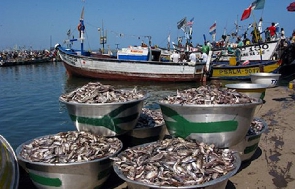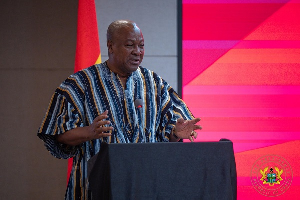Inconsistent policies, including the poorly-managed decoupling of the fisheries sub-sector from the wider food and agriculture ministry, are among the major problems bedeviling the sub-sector, and concrete steps must be taken to reverse the trend, if the nation is to benefit from the US$170 billion market, renowned economist, Kwame Pianim, has said.
Speaking at the first Hybrid Aquaculture Conference in West Africa, on the topic, ‘The challenges to aquaculture business in Ghana’, Mr. Pianim expressed frustration at the seeming double standards, which has backing in the legislature.
“There is an evident lack of coordination in the sector and with its policies. For example, feed for poultry comes into the country, largely duty-free but feed for aquaculture is subject to a number of duties and levies. This is because the legislators say feed is for animals, and fish, according to our legislators, appear not to be animals,” he said.
Mr. Pianim further blamed the failure of the country to significantly increase its fish production in recent years on currency instability and its effect on the price of inputs, particularly feed.
With feed accounting for 65 percent of production cost, on average, the economist said the high cost of quality fish feeds as a result of foreign exchange volatility and its impact on the importation of feed has forced prices of fish to skyrocket, whilst also hurting the fish farming business.
Mr. Pianim further argued that aquaculture is the country’s best bet at reducing the current fish deficit and set the nation on a path beyond self-sufficiency in fish production, to becoming a significant net exporter of fish and fish produce. “Aquaculture is, without a doubt, the most economically viable option if we are to achieve self-sufficiency in food production; not artisanal or even industrial, but aquaculture,” he said.
Ghana is reported to have imported an estimated US$311 million worth of seafood and fish in 2018, according to the U.S Department of Agriculture (USDA), with current consumption hovering around 1 million tonnes per year, catered for by 40 percent local produce and 60 percent imported.
Whilst admitting that the sub-sector remains largely untapped and is beset with a combination of problems including poor access to credit, lack of the requisite technical skills, unavailability of good quality and moderately priced fish feed, as well as lack of direct investments; Mr. Pianim called on the government to create an enabling environment to attract investors into aquaculture, whilst discouraging imports as well.
Offering thoughts on the actions required to effect lasting change in the sub-sector, Chairman of the Chamber of Aquaculture (COA) – Ghana, Dr. Anim Somuah said that his outfit will continue to stay within its remits of advocacy and continue to use that as its primary tool.
“We are not the legislators, what we can do is to engage them and bring the issues to the fore. As a Chamber, our work is advocacy and we have done and continue to do this with the belief that it will yield results.”
The conference, which was held under the theme ‘New strategies to promote inclusion and transparency in aquaculture management in West Africa’, had in attendance Deputy Head of Mission of the Norwegian Embassy to Ghana, Oyvind Uland Johansen; Country Director, GIZ Ghana, Regina Bauerochse Barbosa; and FAO Regional Senior Fisheries Officer, Ndiaga Gueye.
Others were Chief Executive Officer at the Ghana Investment Promotion Centre (GIPC), Yofi Grant; African Chapter President of the World Aquaculture Society (WAS AC) Sherif Sadek; and Head of Department, Marine and Fisheries Science at the University of Ghana, Prof. Francis K.E. Nunoo.
Business News of Tuesday, 18 May 2021
Source: thebftonline.com













